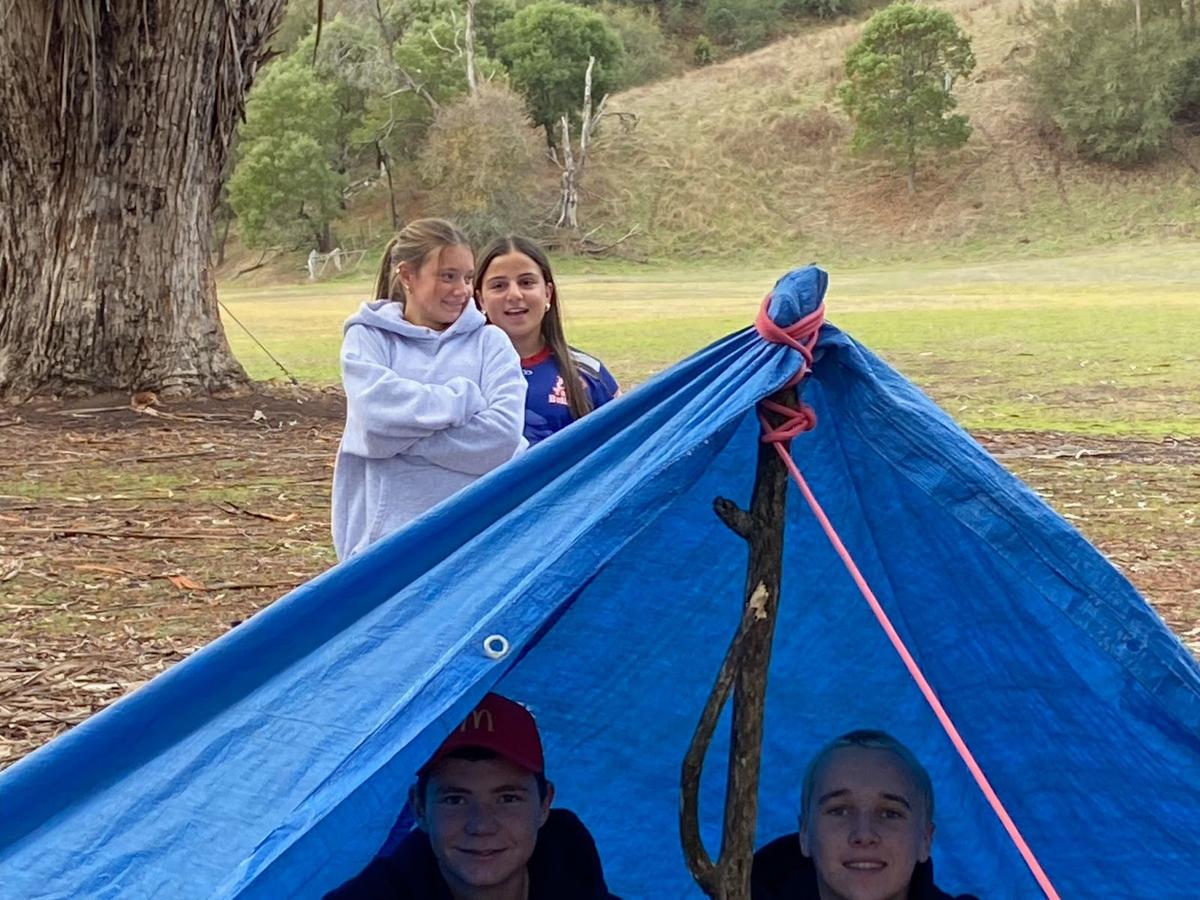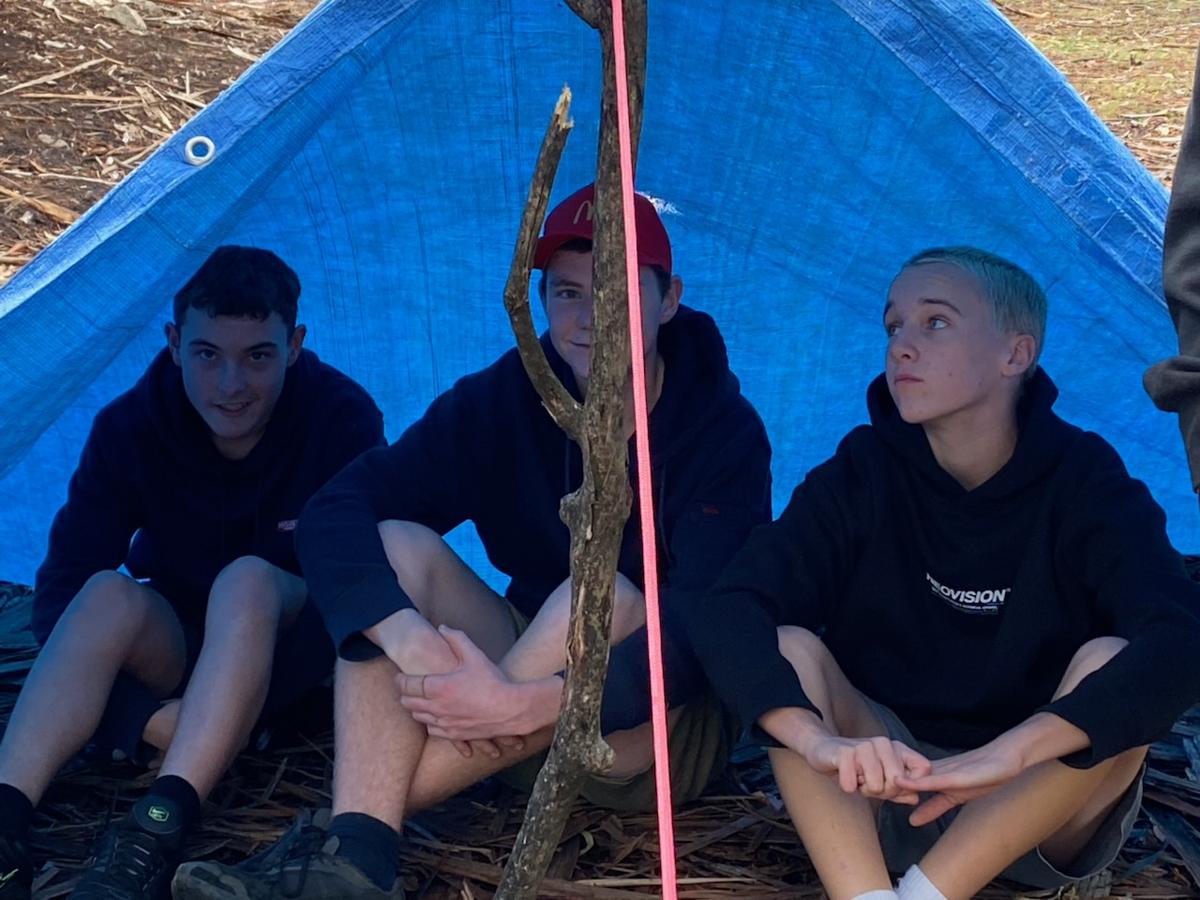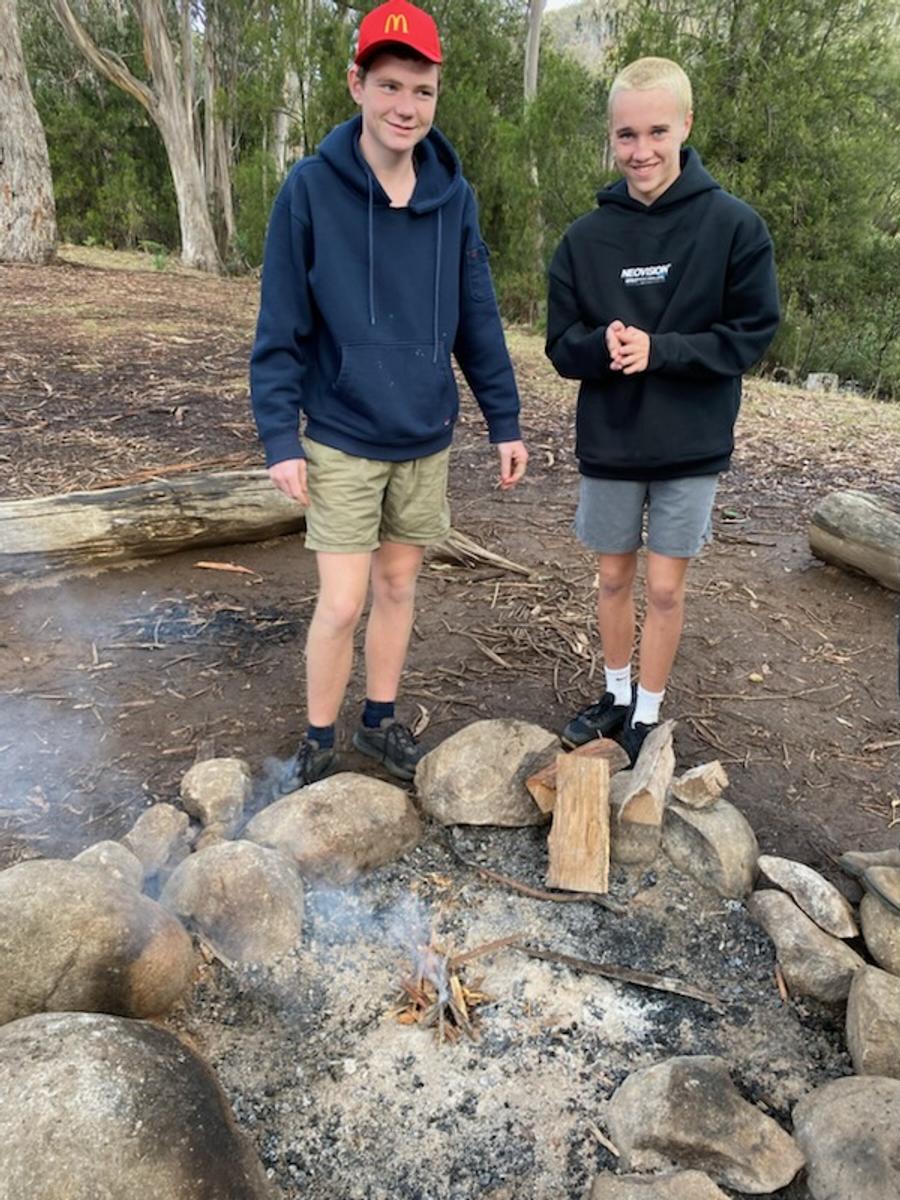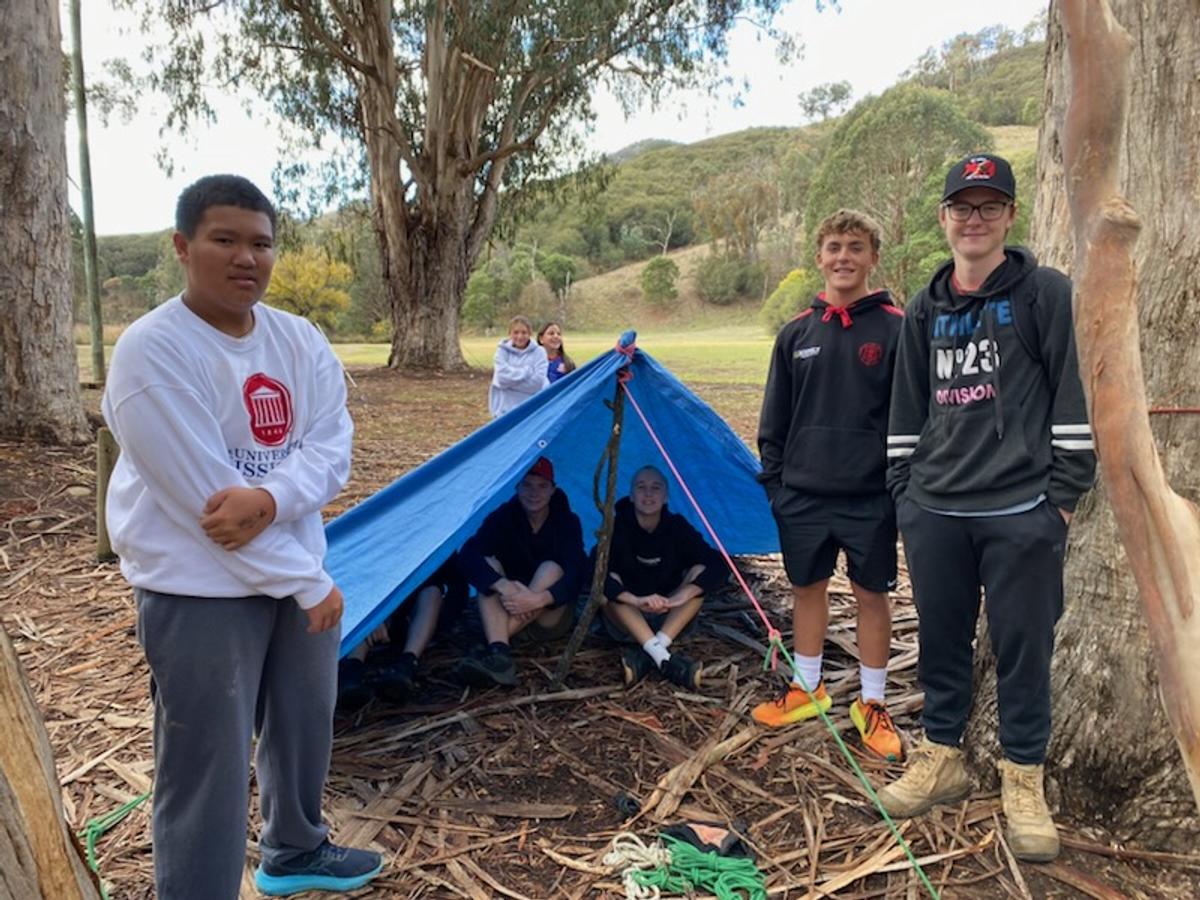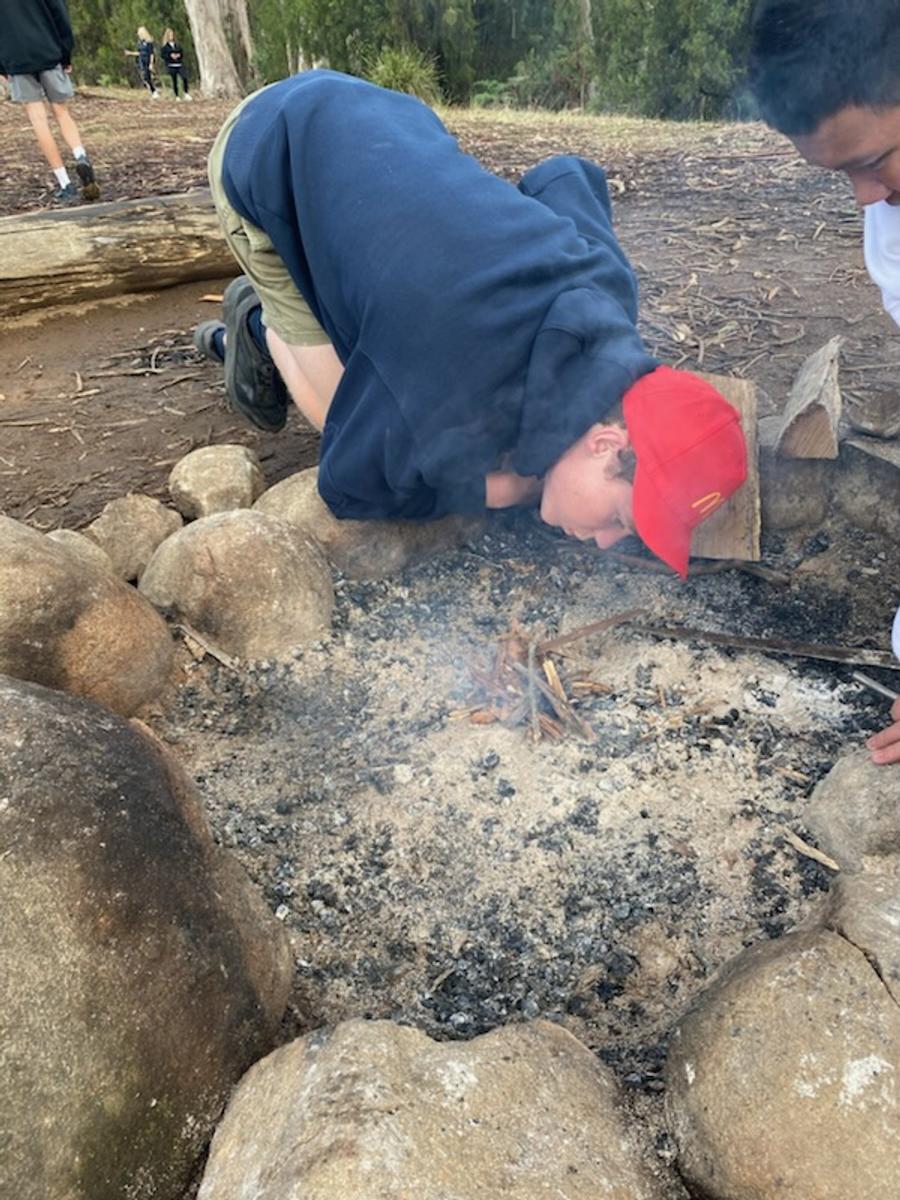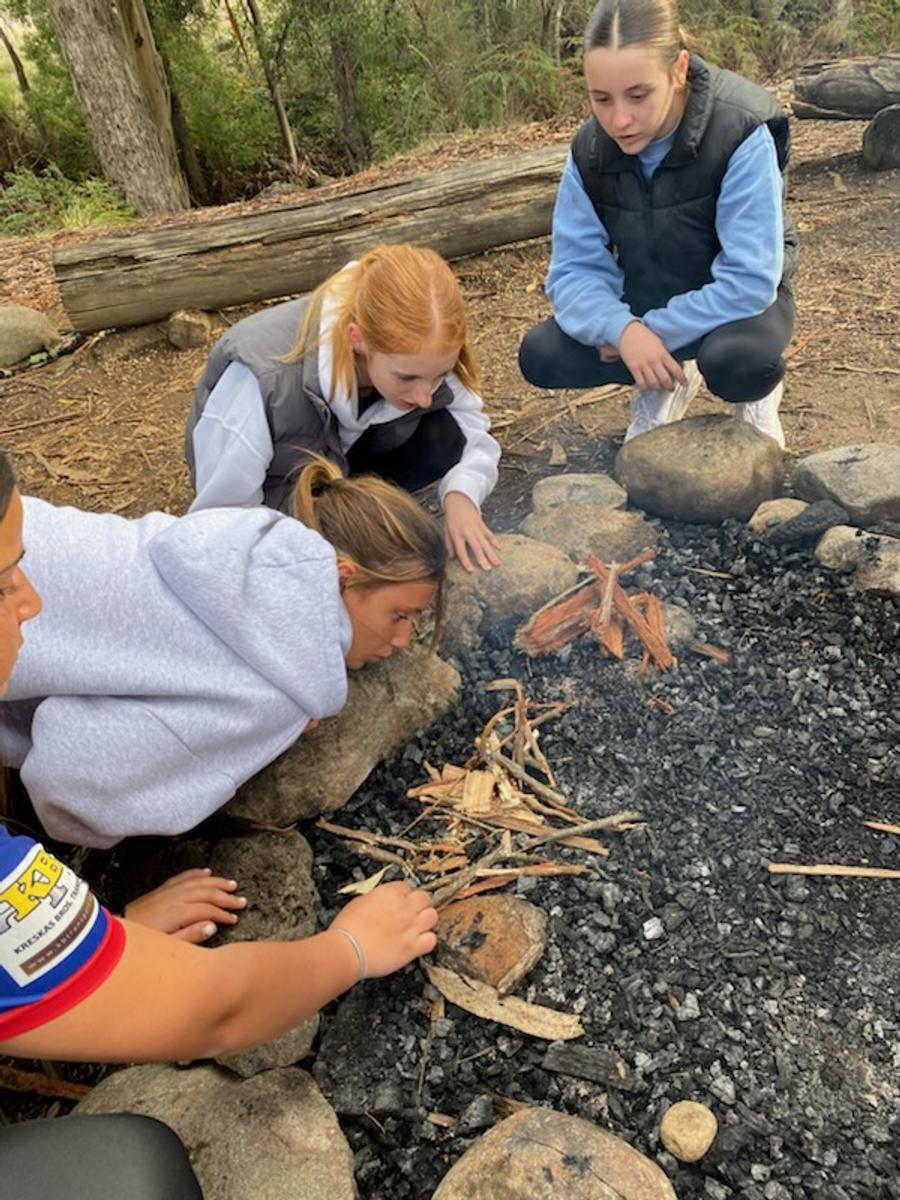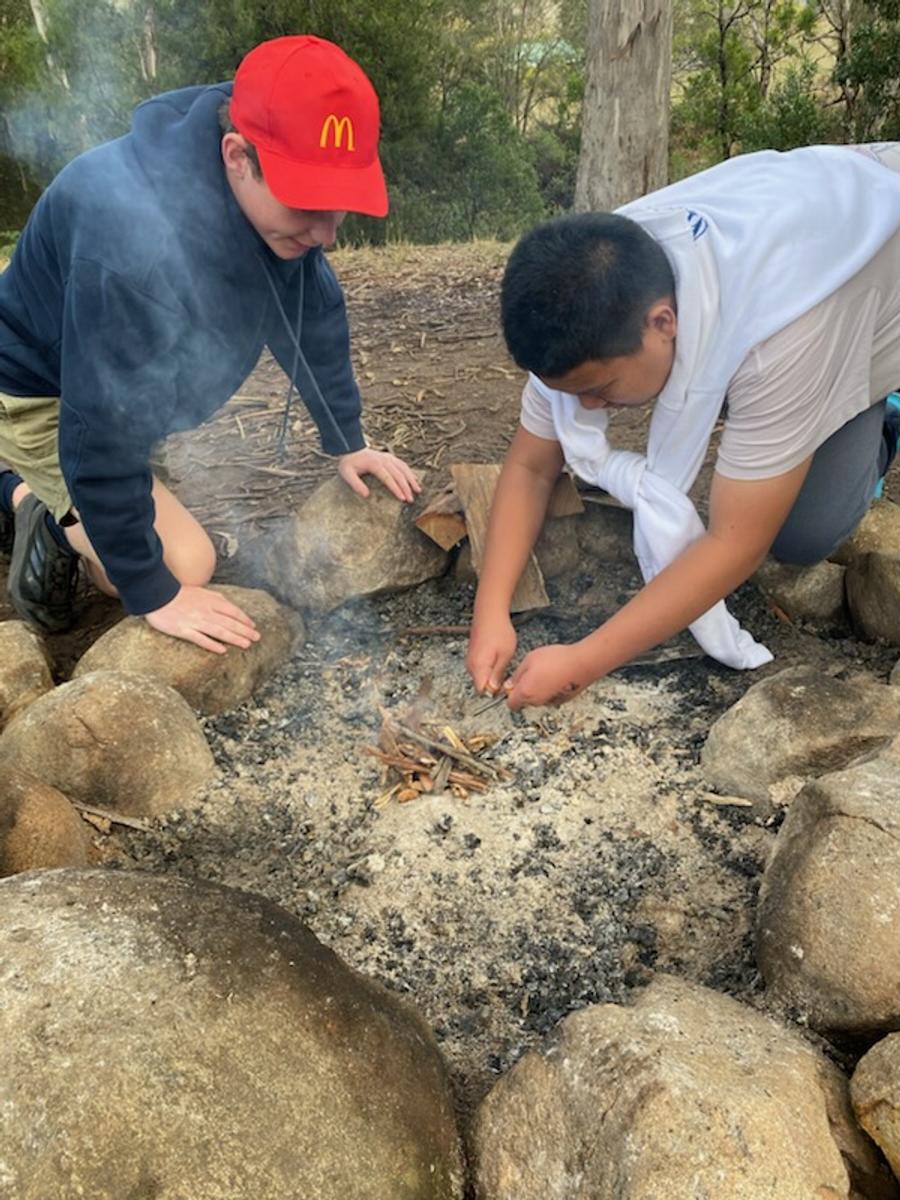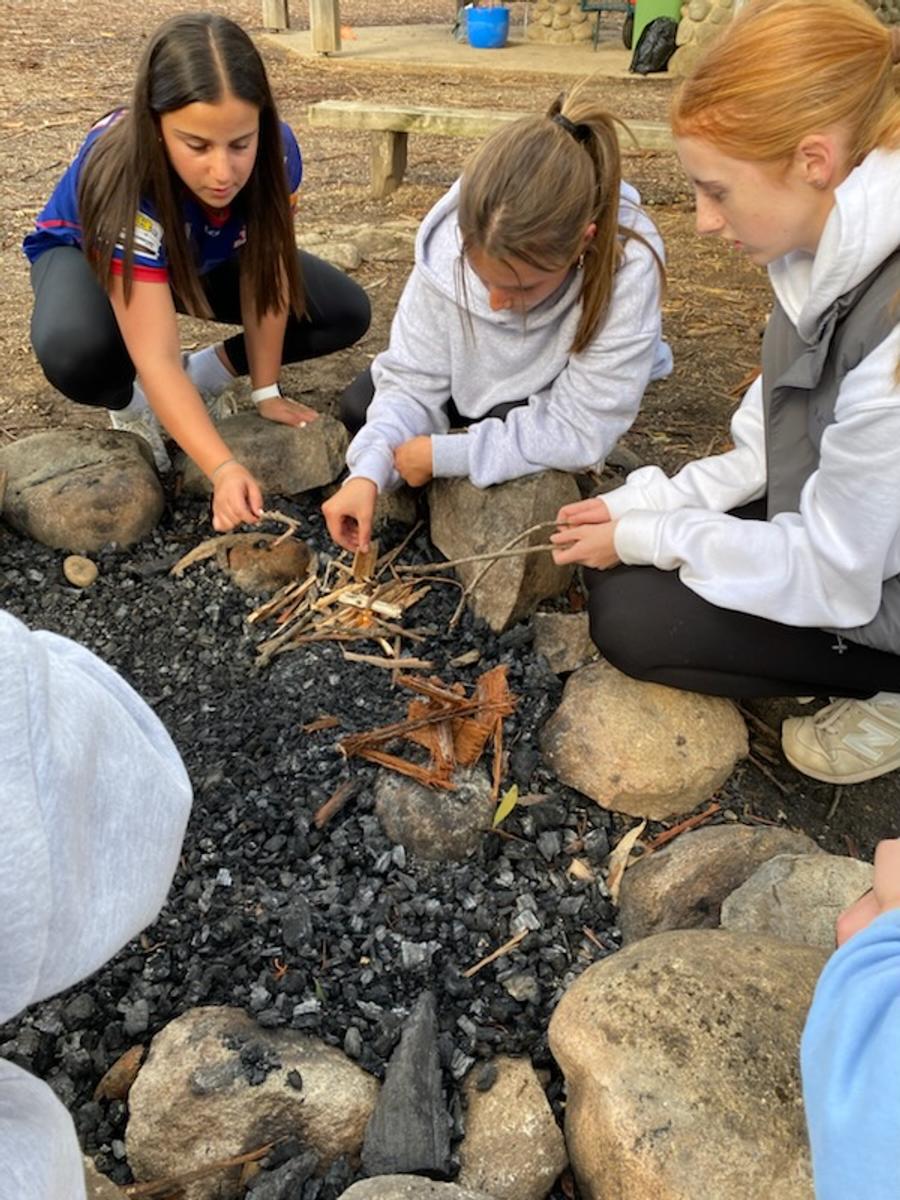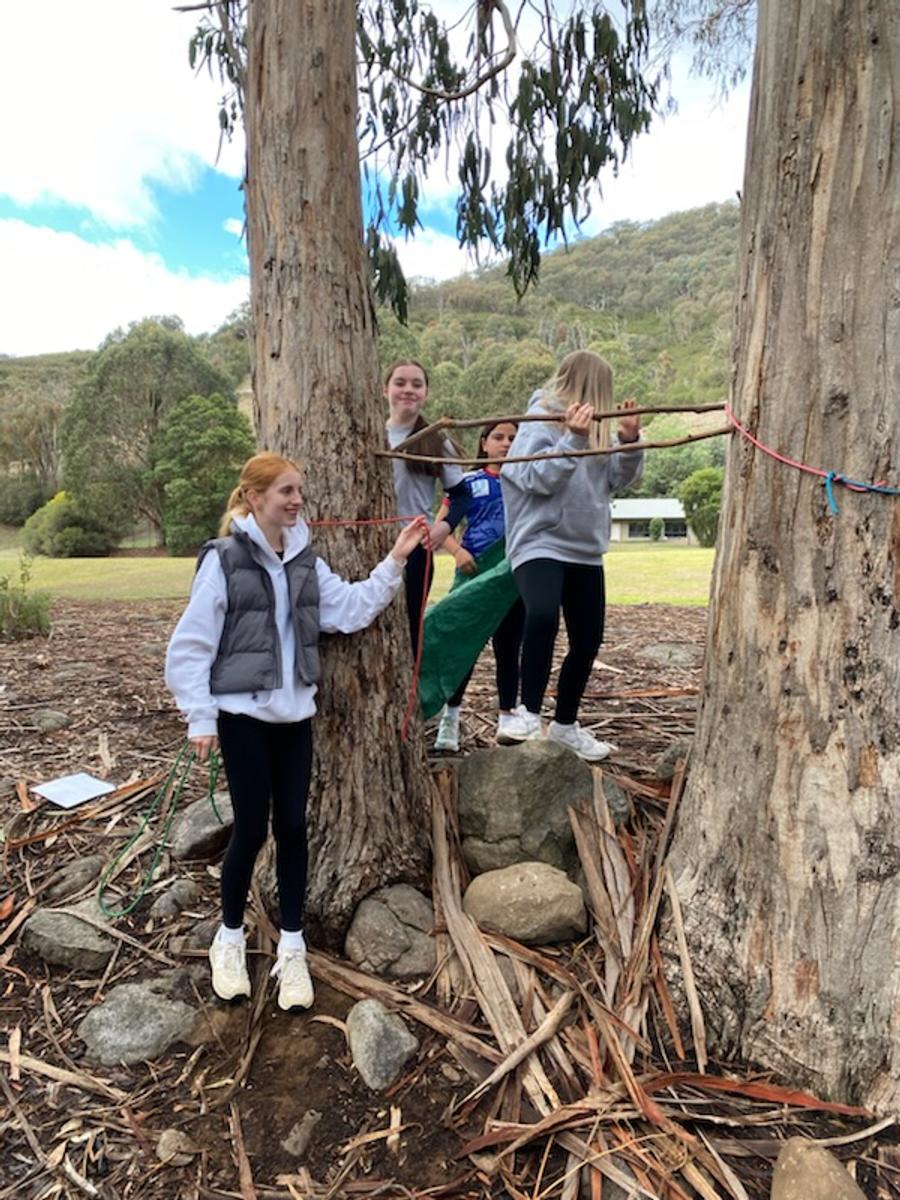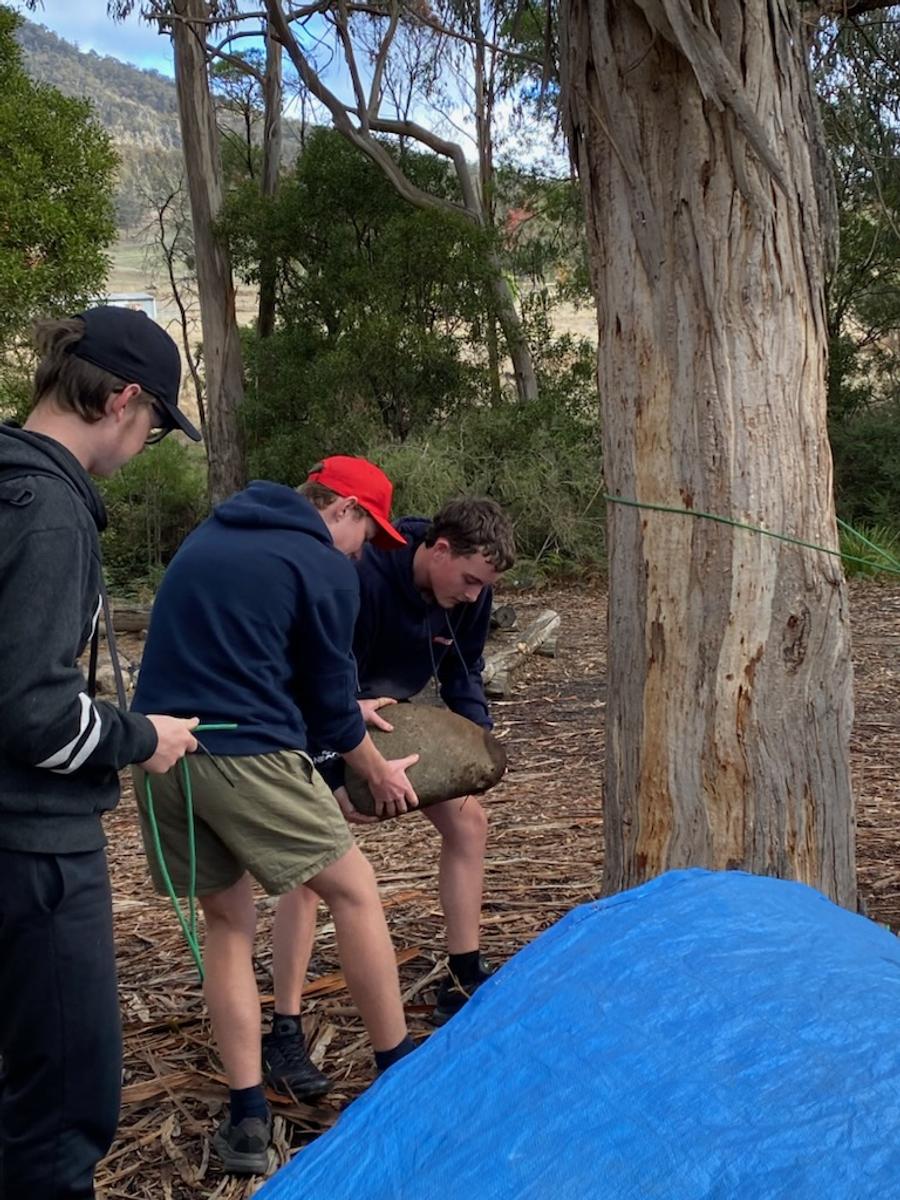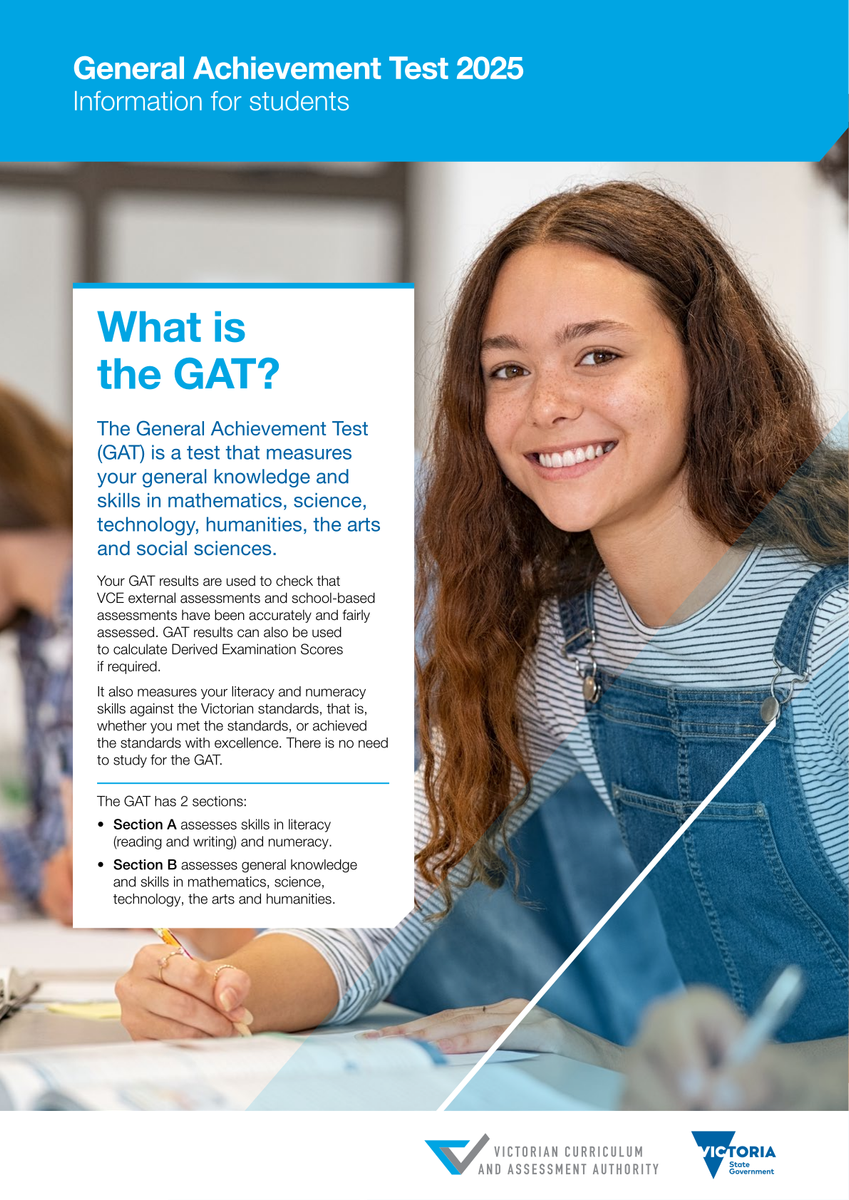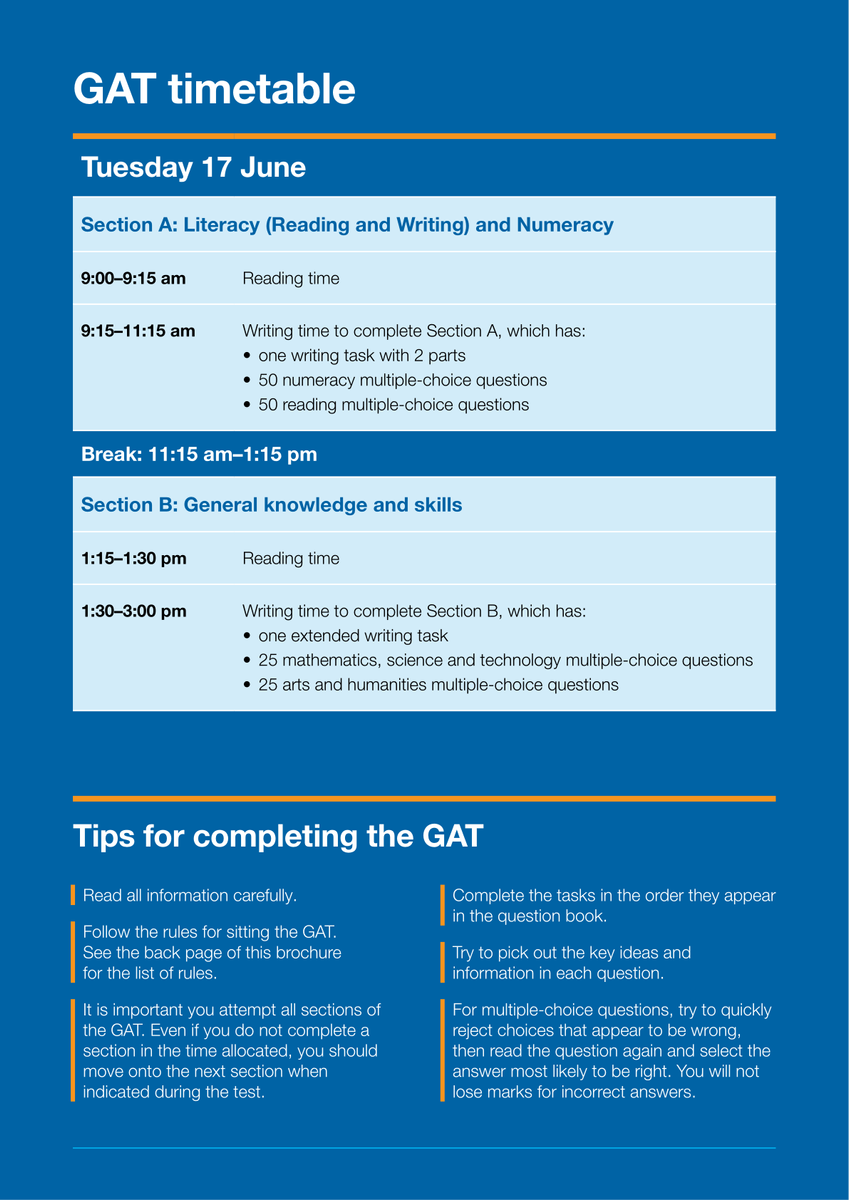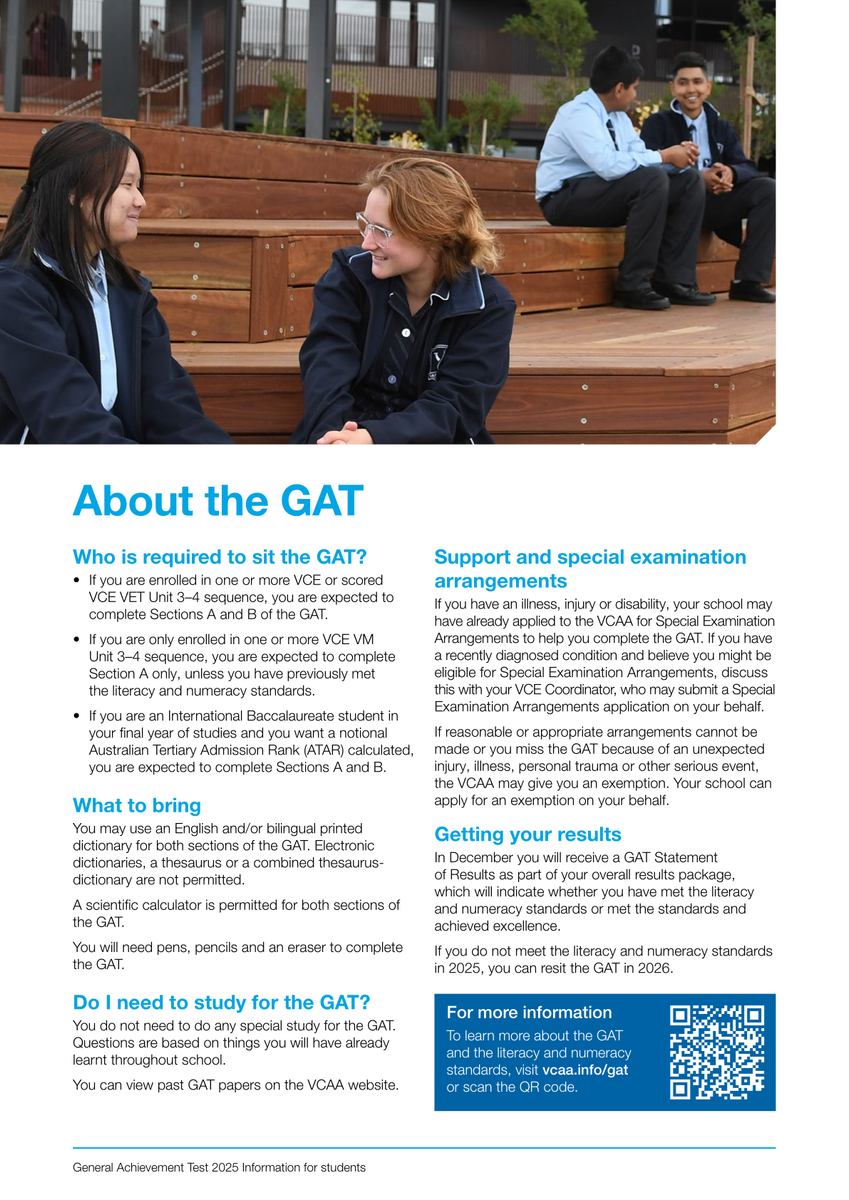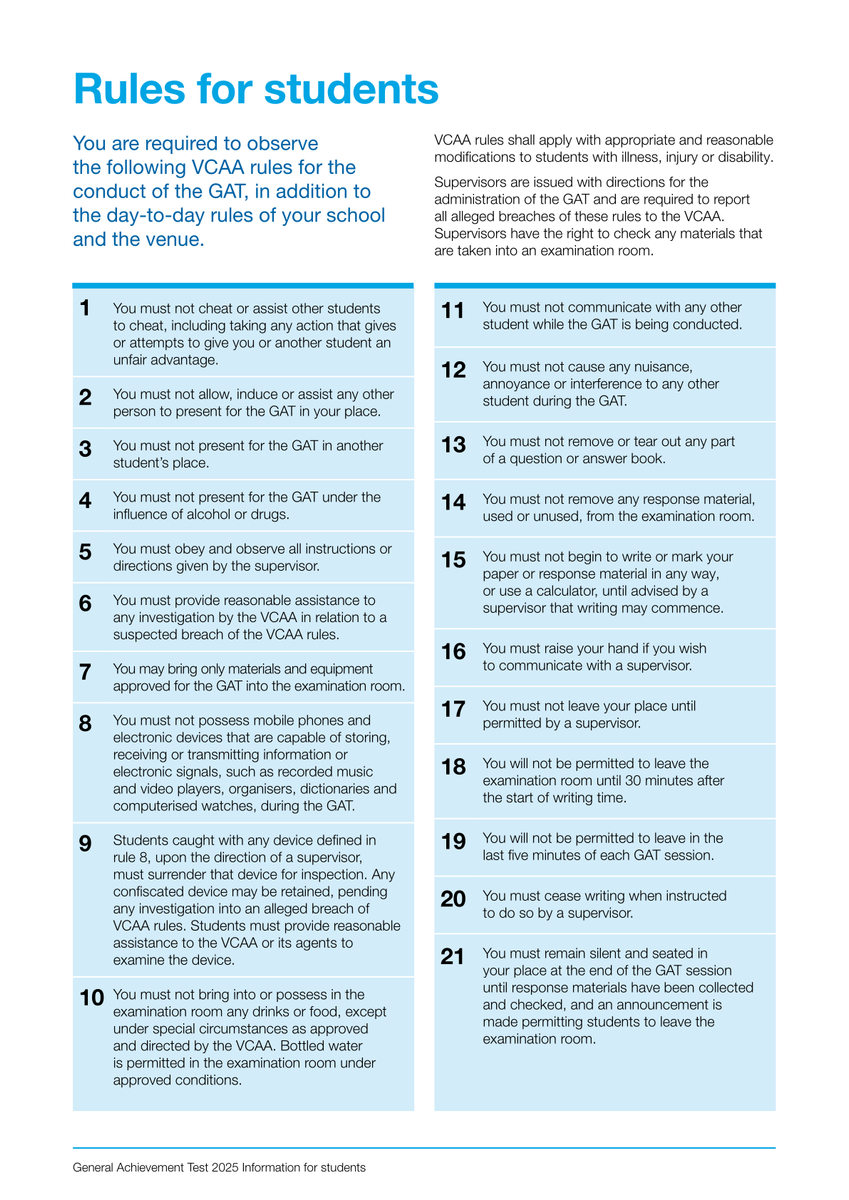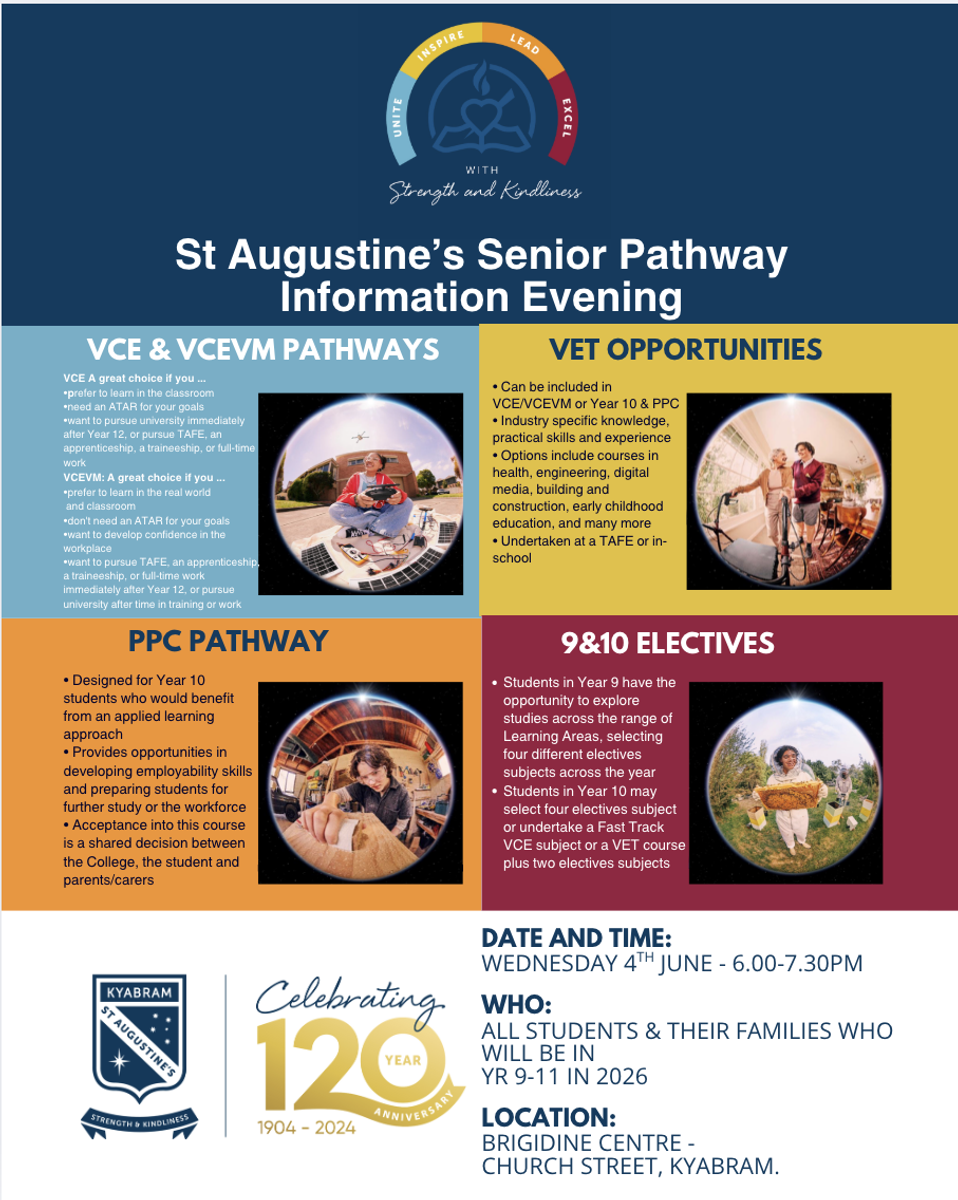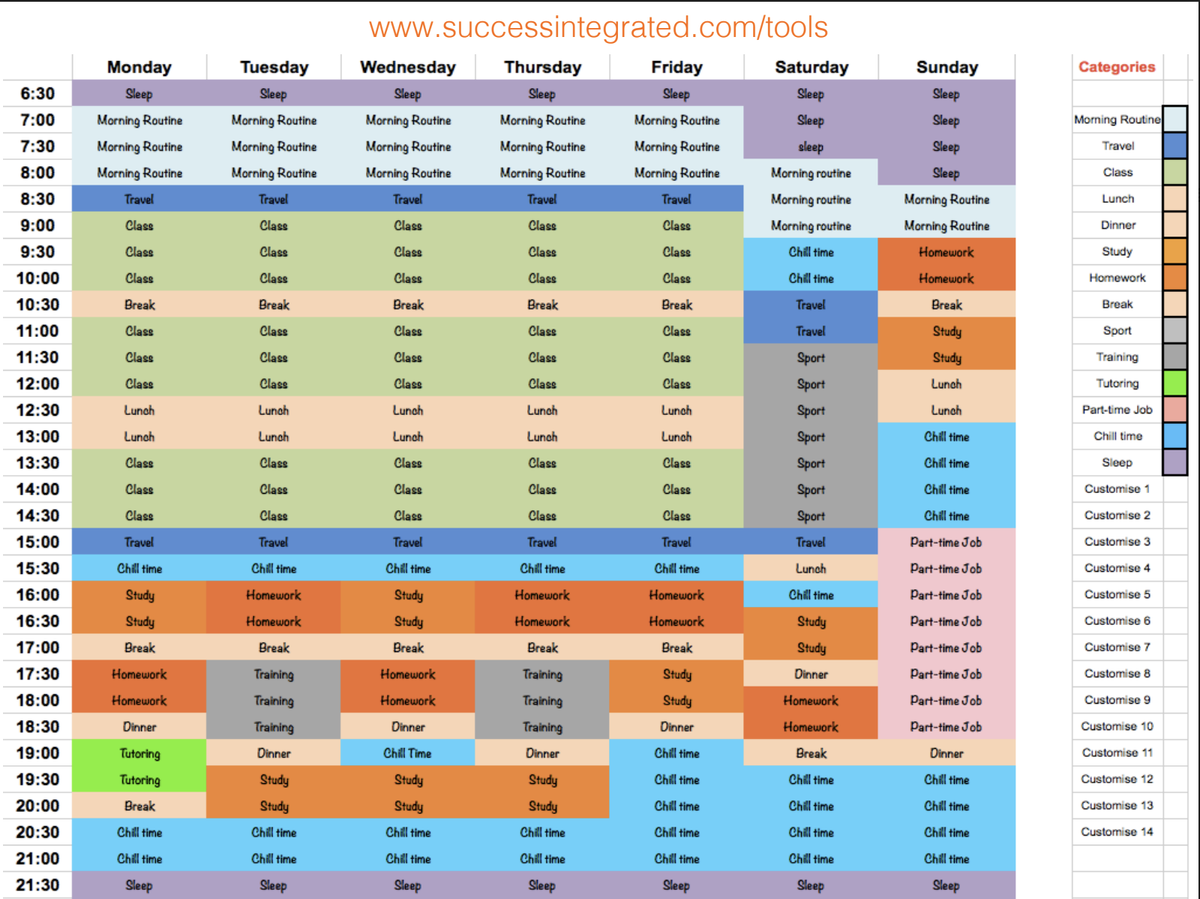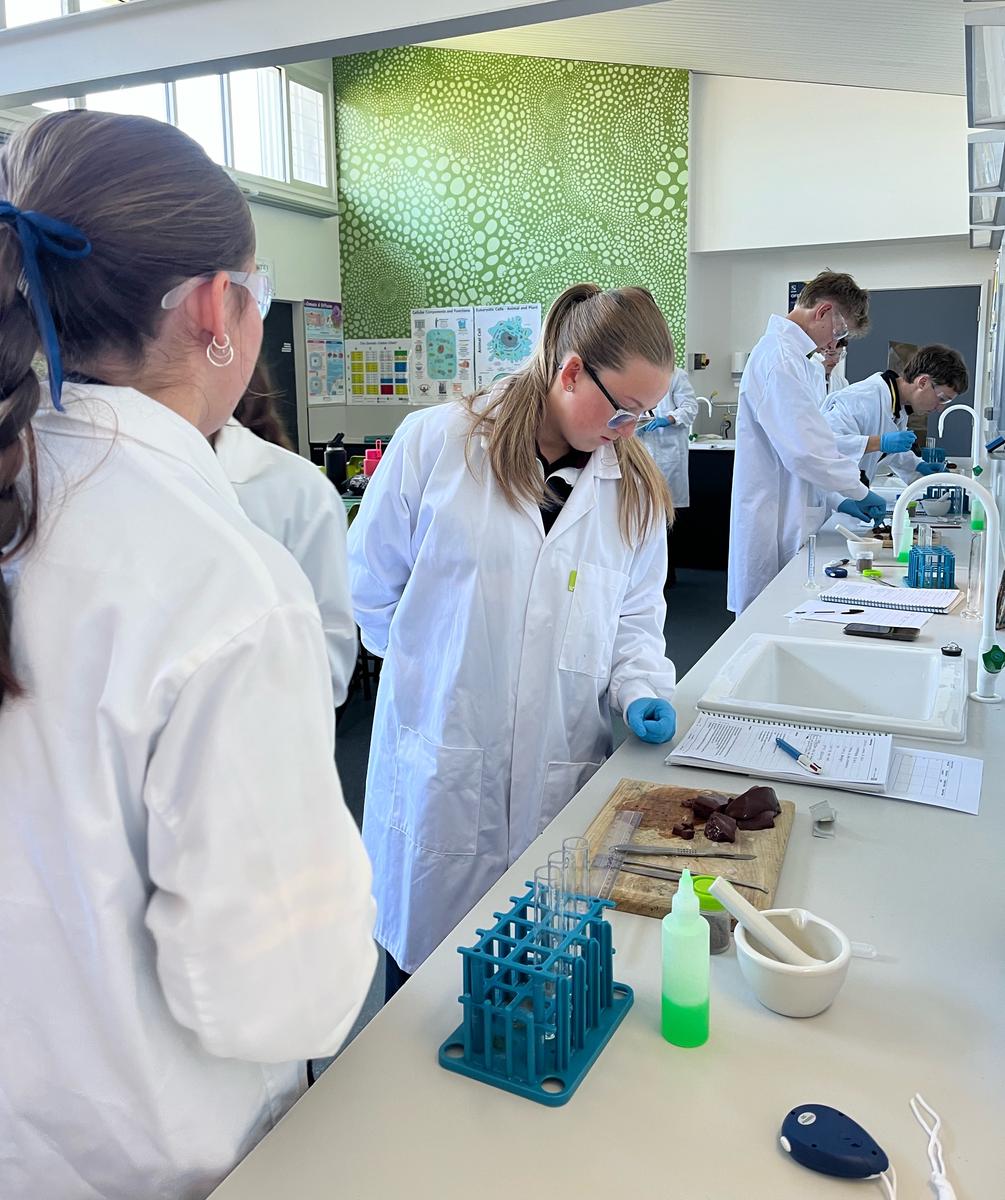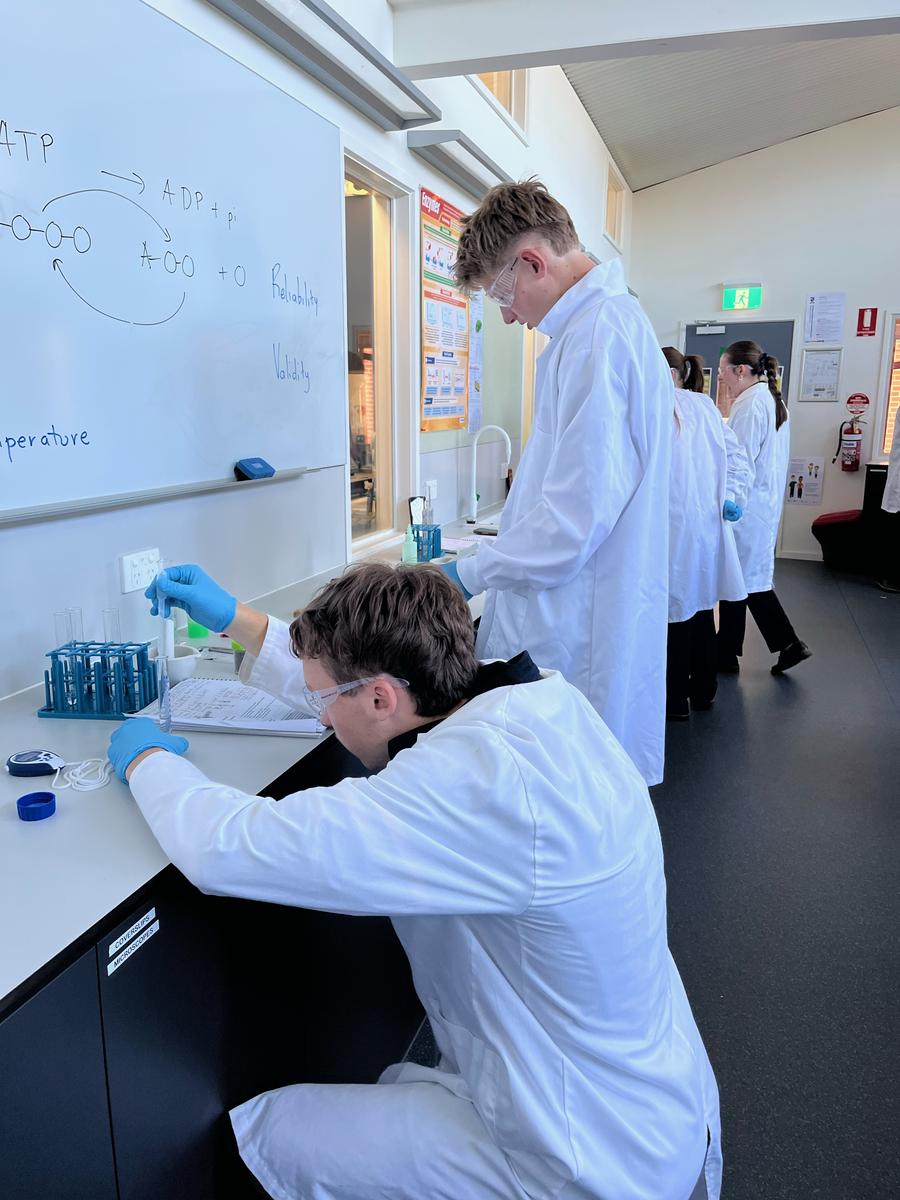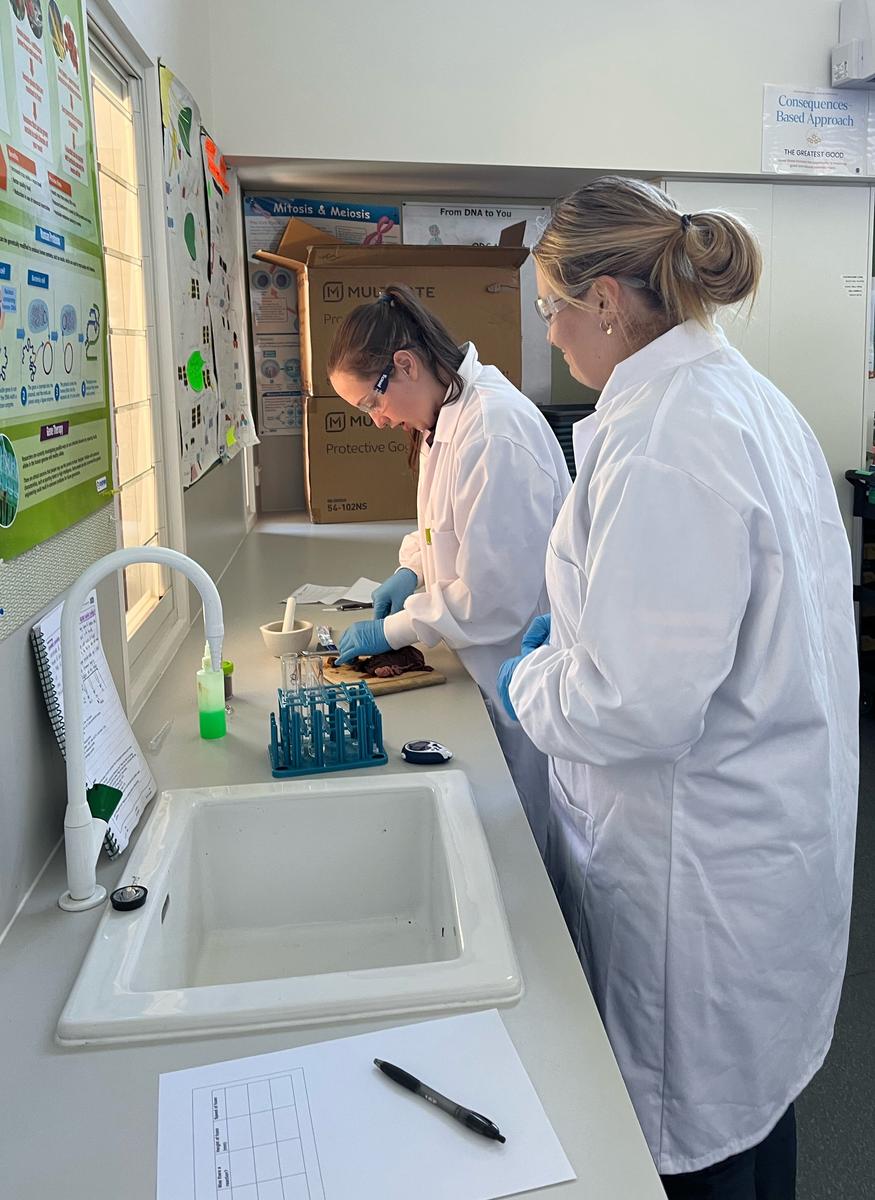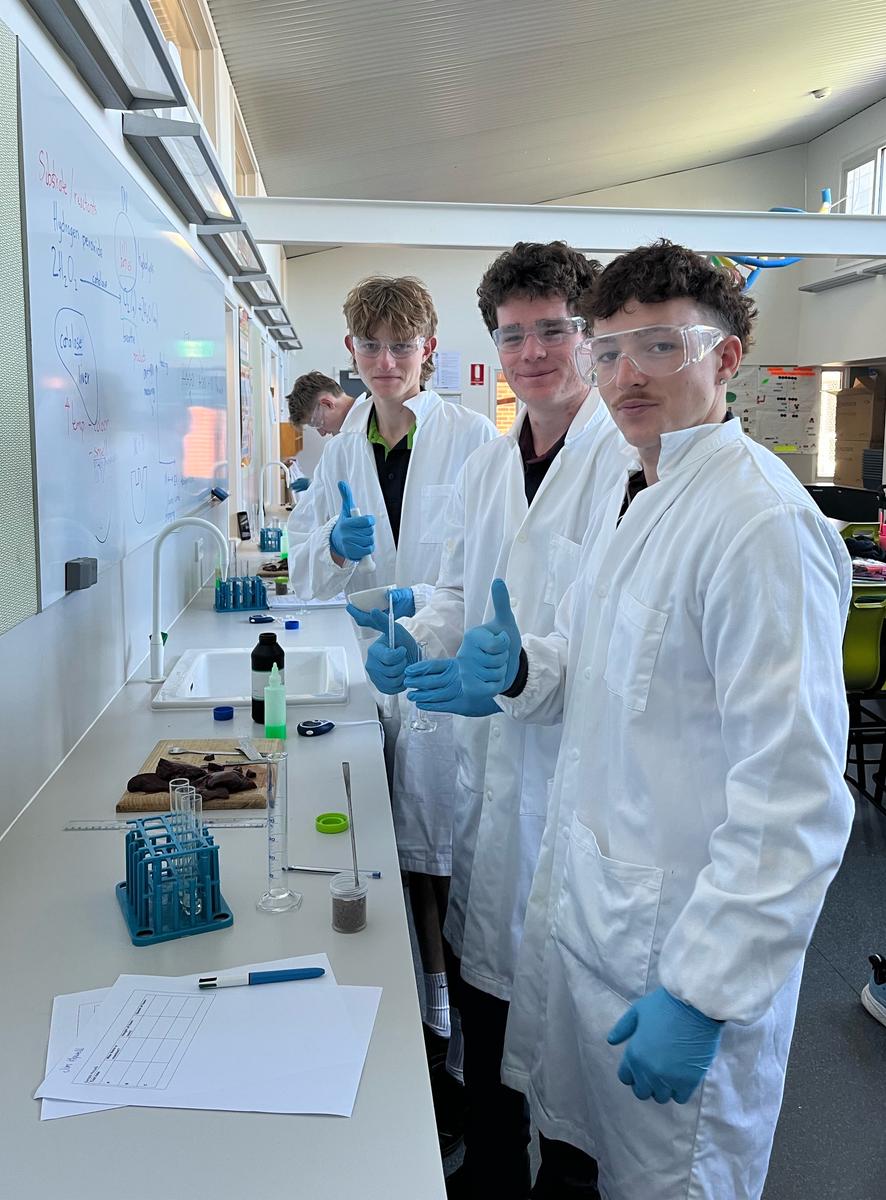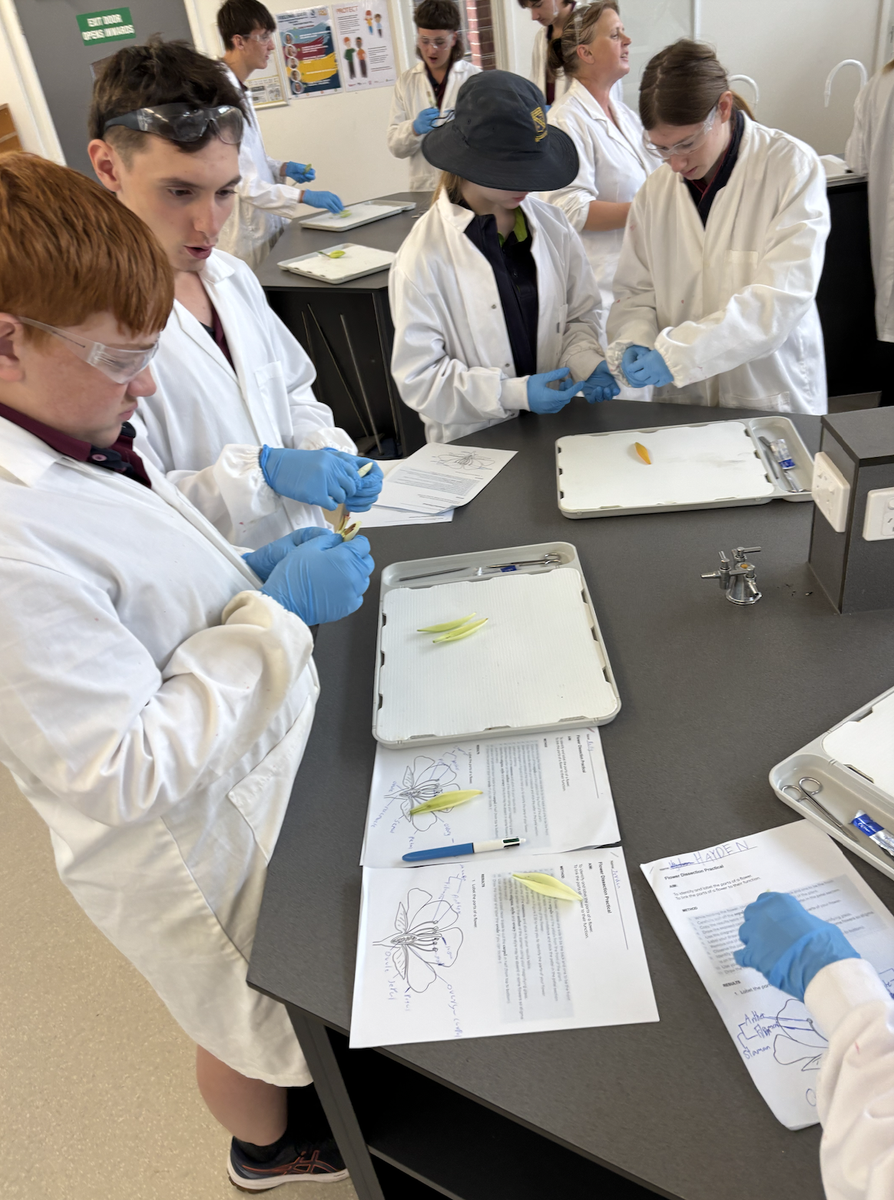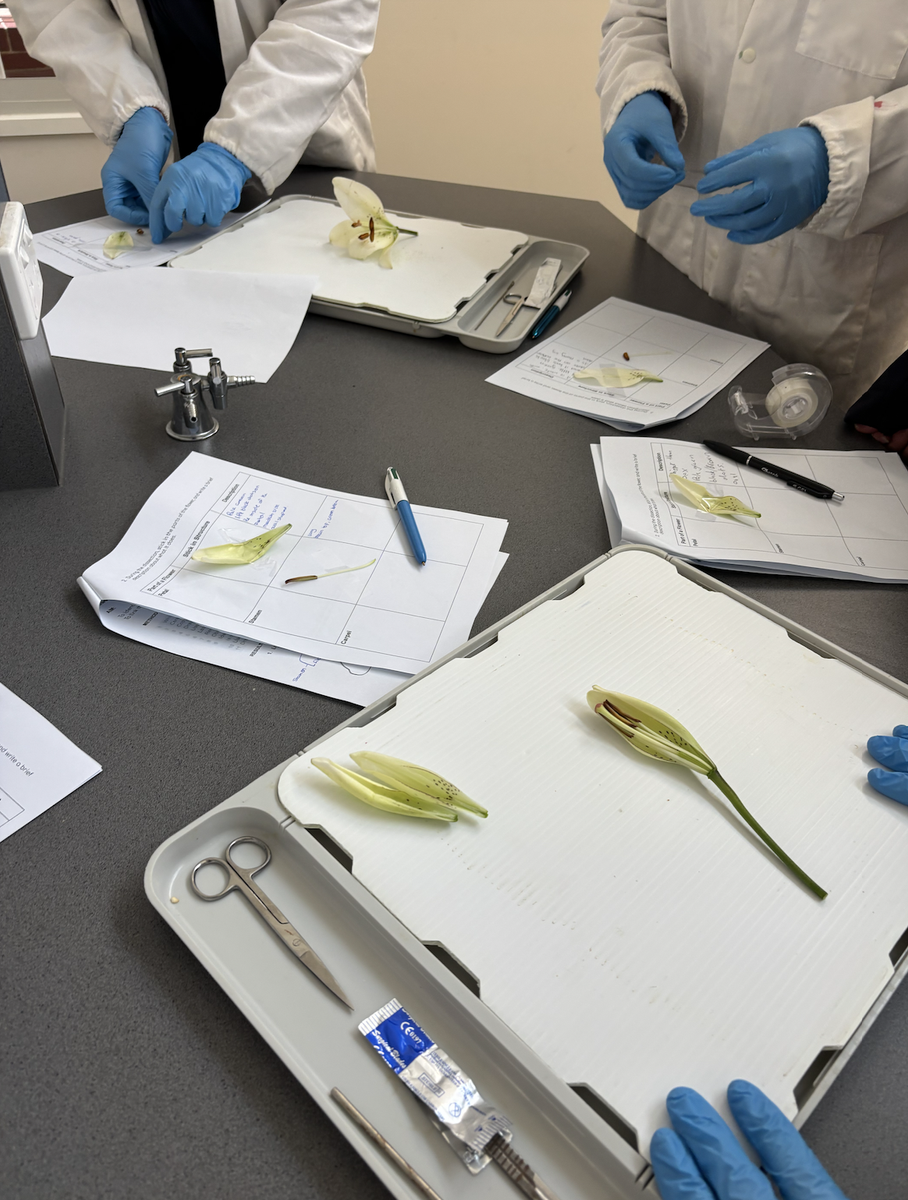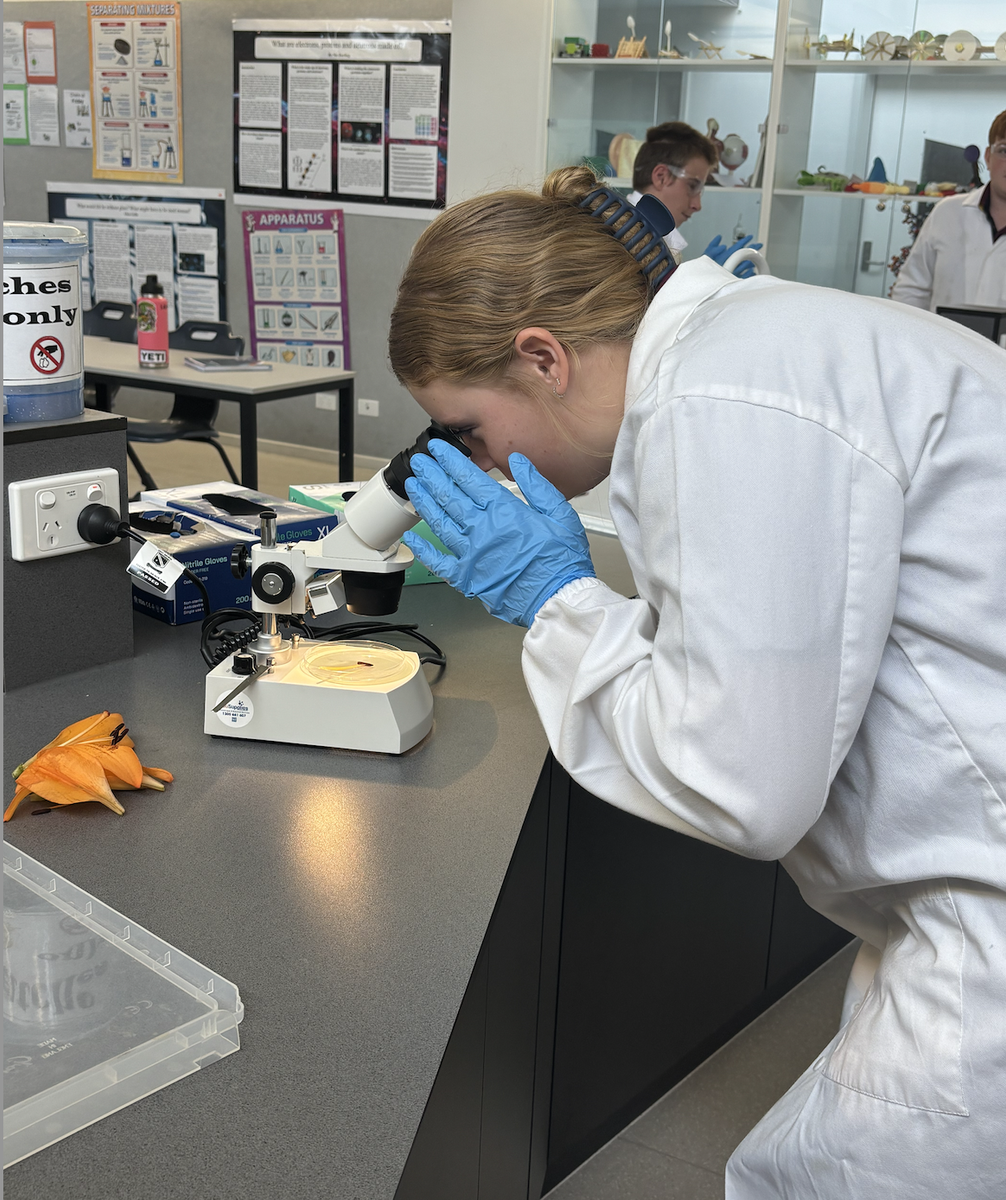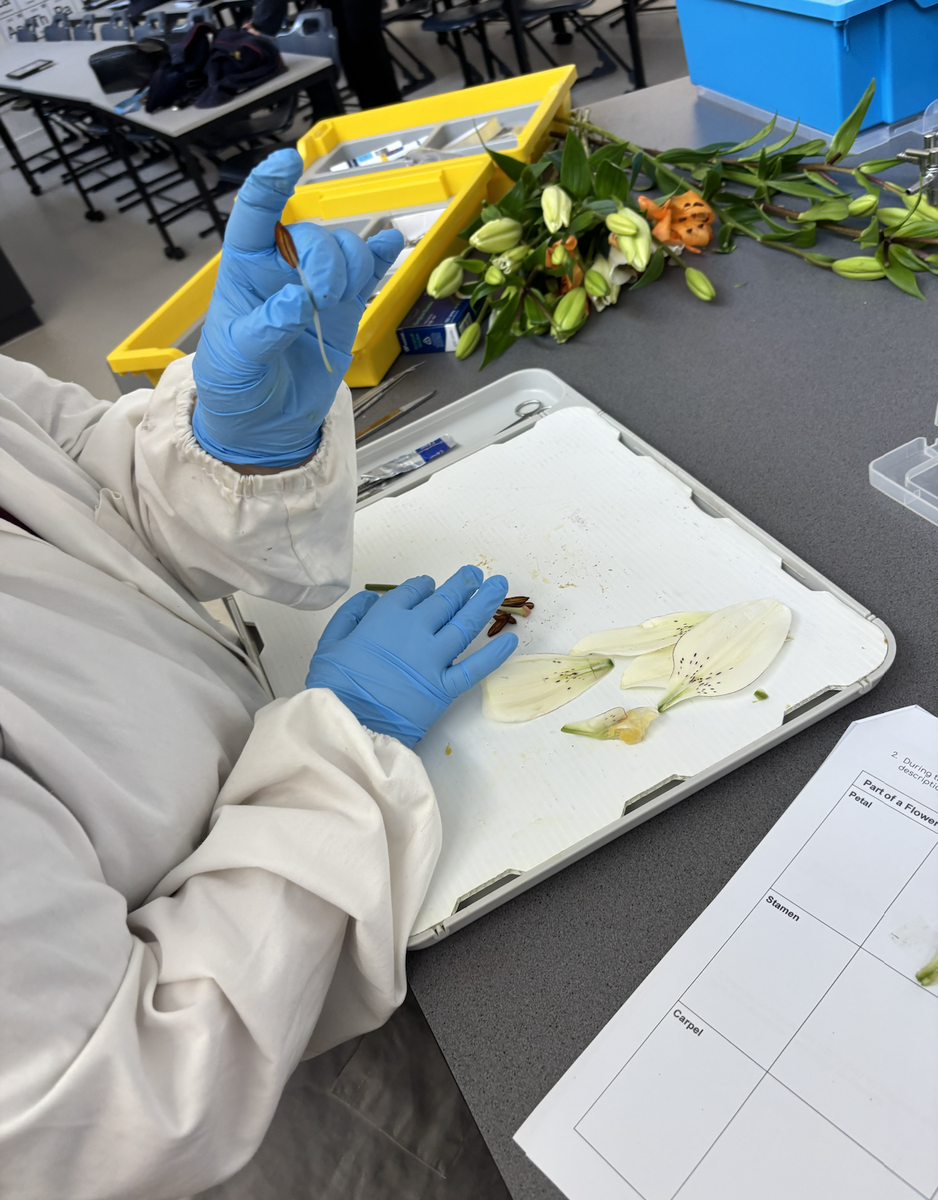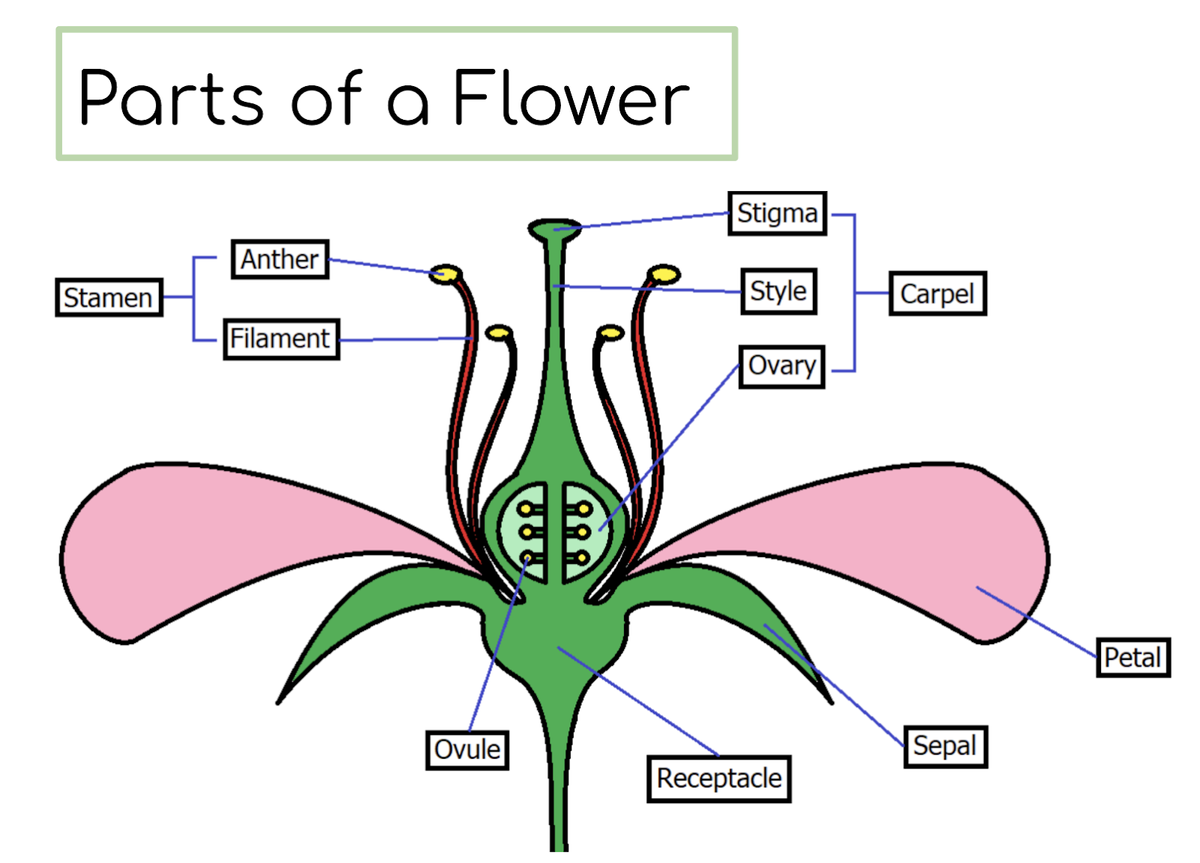9-12 Community News
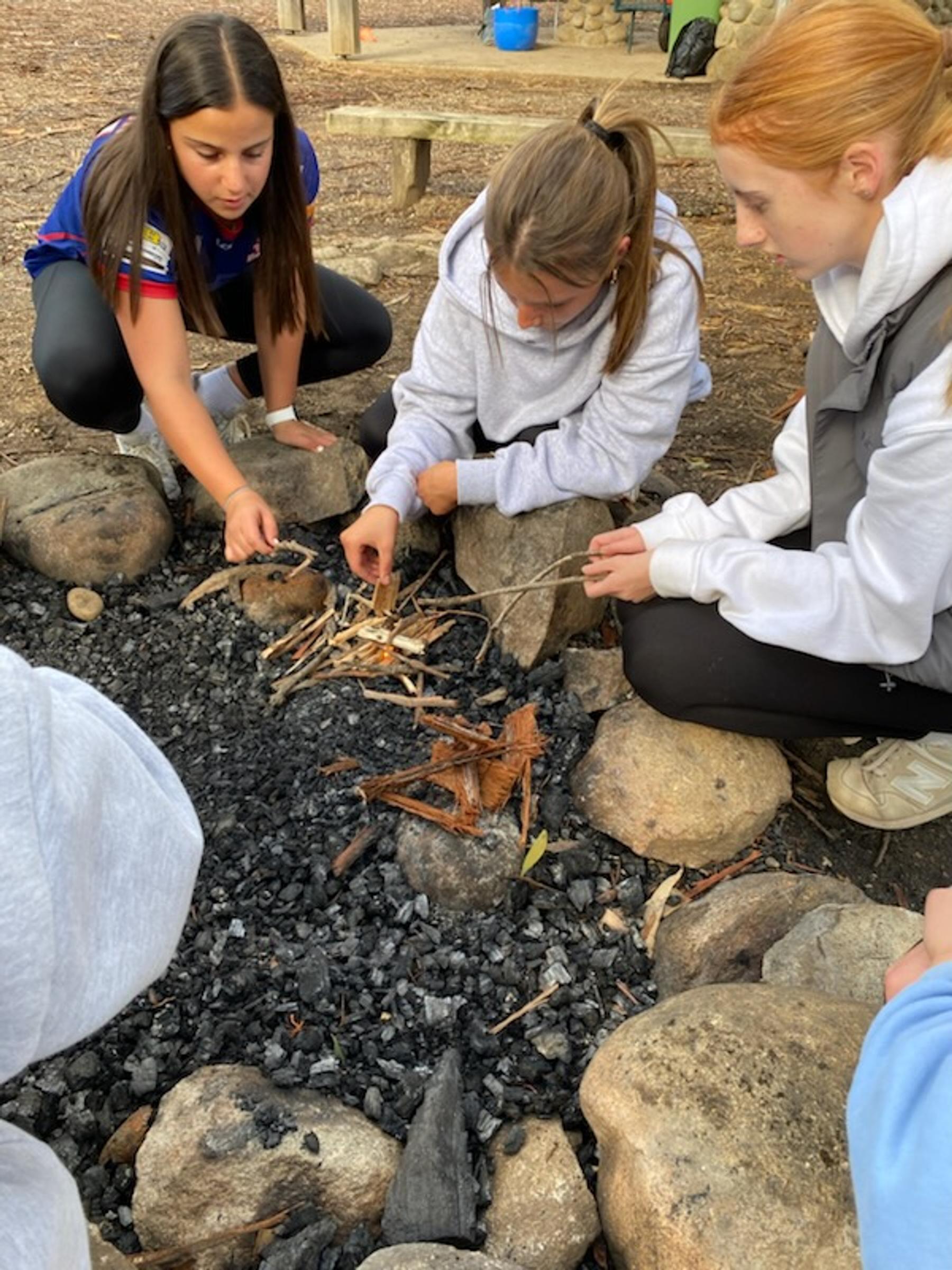
As we approach the midway point of Term 2, there has certainly been lots to celebrate and lots to look forward to. This week, our Year 9’s have attended their camp, at Camp Jungai, Rubicon. The conditions have been ideal for the camp, while they have spent time experiencing high ropes, canoeing, bush walks, learning bush skills and indigenous games and cultural activities. More to follow in our next newsletter edition. Here is a sneak peek of some of the students engaged in the fun activities on offer. Thank you to Mr Downie, Mrs Lewis, Mrs Reed, Janelle and Darcy for supporting the students this week.
GAT - June 17th
June 17th will see the Years 11 and 12 students undertake the General Achievement Test (GAT), an important examination in the overall VCE journey for our students. In preparation for the GAT, students have the opportunity to complete a practice test in Week 7.
Students received the details of the GAT through a brochure (detailed below) and in seminars conducted at school.
The GAT is compulsory for all Years 11 and 12 students who are undertaking Units 3/4 subjects and/or scored VET courses. There will be no VCE classes on this day.
We wish all our students the best of luck.
VCE Update
As we reach the conclusion of Units 1 and 3, we would like to commend all students for their dedication and hard work throughout this term. The completion of Unit 3 marks a significant milestone in the VCE journey and students are now moving into the final phase of their studies with Unit 4.
Over the final weeks of Term 2, we will begin preparation for Units 2 and 4, which includes consolidating key Units 1 and 3 concepts, identifying areas for improvement and introducing the core content of the final unit. Students will be encouraged to engage in active revision and seek support where needed to ensure they enter Units 2 and 4 with confidence.
Your continued support at home is invaluable. Please encourage your child to maintain a regular study routine and make use of available resources, including revision sessions and teacher feedback.
If you have any questions or would like to discuss your child’s progress, please do not hesitate to get in touch with subject teachers.
Subject Selection Information Evening - Wednesday 4th June
The Senior Pathways Night will be held in the Brigidine Centre next Wednesday, 4th June, from 6.00pm - 7.30pm.
This is a vitally important night for all current Years 8, 9 and 10 students as they consider their pathways and subject choices as they move into the senior secondary years.
This session will also provide information on the timeline and processes for students’ subject selection. Students will be asked to indicate their subject selection/preferences in the weeks following this presentation, so it is very important that students and their families are aware of the many options that they have and the process, and timeframe, that the College will be following in determining our 2026 subject offerings.
If families are not able to attend on the night, all information that is presented will be shared digitally in the days following the event.
Any inquiries regarding this can be directed to Katelyn McIntyre katelynmcintyre@sakyabram.vic.edu.au
Success Integrated
Following our Senior Pathway Night, our Years 9 and 10 students will be attending sessions with Darren Pereira from Success Integrated.
Our Year 9 students will participate in a presentation titled, ‘Power to Persist’. This program is designed to develop resilience and grit in students. Research suggests that students who are equipped to deal with setbacks, disappointments and failure in a healthy way, are able to handle the pressures they face socially, academically and emotionally; both within and outside of school. Our Year 9 students are bound to learn some valuable strategies to help them on their way to achieving success.
To coincide with the subject selection process for 2026, the Year 10 students will be involved in the highly engaging program, ‘Pathways to Success’. This seminar is specifically designed to help students to identify and align their innermost desires to their talents and unique abilities, to set goals and develop a plan of action to achieve it. Students will learn ways to develop powerful strategies to become and stay motivated during their senior years and how to boost their confidence. The workshop provides valuable information to help our students plan and decide on their pathways for the future.
For education to be successful it must work as a partnership. This partnership between the school, the student and parents is crucial for ensuring positive and successful outcomes. When a teacher sets homework, assignments or a task to be completed, the expectation is that the student completes this to the best of their ability, to demonstrate their skills, knowledge and understanding, so formative or summative assessment can take place. If the student fails to submit the work or fully complete the task, it makes assessing, grading and reporting very difficult. As parents and carers, we can play an important supportive role by having conversations with our children about school work, assignments and homework and help support and encourage them to complete these requirements in a timely manner.
Research suggests that children are more successful in school if parents are able to take an active interest in their education as it demonstrates to the child that what they do is important. As parents and carers, you can support your child/ren by demonstrating what ‘good organisation’ looks like and helping them with some study skills. Sometimes, you can also assist by simply encouraging your child/ren to have a break if they have been stuck on the same question or task for an extended period of time.
Constructing a study timetable can be a great way to assist students with their time management. Productive Study routines can be very helpful for managing student commitments and stress levels.
Below is an image and a link to the Success Integrated website that provides access to a study timetable that can be customised to suit individuals.
https://successintegrated.com/tools/
Password: SMBTI
Work Experience
In Week 11, the students of 10B will have the opportunity to gain valuable insights into the world of work, commencing their Work Experience placements at workplaces including local primary schools, plumbers, electricians, accounting firms, real estate agents, mechanics workshops and pharmacies.
We wish our students all the best and hope that this experience will provide them with an understanding and appreciation of the possibilities for life after school. Students have been researching employment opportunities and making contact with potential employers as part of our Year 10 Career Ed classes.
| Michelle Downie | Katelyn McIntyre | Sharon Darling | |||
| 9-12 Community Leader | 9-12 Community Leader | VCE Co-ordinator | |||
| Wellbeing & Community | Student Learning & | ||||
| Professional Practice |
Unit 3 Biology
Within Study Area 2 of Unit 3 Biology, students undertake three practical activities in order to compare and evaluate biological concepts, methodologies and findings. Our first practical activity investigated the functioning of enzymes. An enzyme within the liver (catalase), specifically speeds up the reaction of hydrogen peroxide into safe, non-poisonous products of water and oxygen gas. Students investigated the effect of temperature on the functioning of this enzyme.
PPC plant dissection
During Week 4, the PPC students donned their lab coats and safety goggles, preparing for a lesson of dissecting some lilies.
Ms Grieve took some time from her busy schedule to run our lab session, teaching the students about lab safety, respecting the specimens and how to use the equipment we needed.
This lesson focused on exploring the different functions and parts of a flower that are important in the pollination process. We labelled a flower, exploring the female gametes and male gametes. The students had to then find, gently cut and inspect the stamen, sepals, anther, stigma and ovaries of their lily. The students were respectful of their specimens and worked well together to locate and carefully dissect the small parts.
The students examined a lily ovary under the microscope, and we were lucky enough to find some ova! (These can be really hard to find and see in typical lilies.)
Afterwards, we engaged in a discussion about the pollination process and how the parts of the plant we’d discovered support the bees in their lifelong mission of pollinating.
This was a super engaging lesson and students were able to get a closer look at the wonderful world of pollination.

